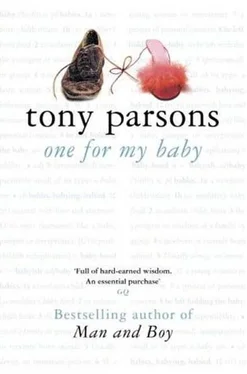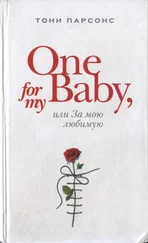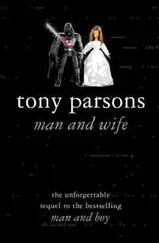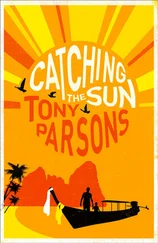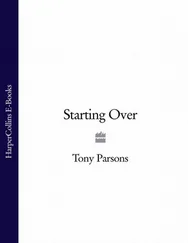Very formal style? Well, that’s right. But I don’t know if she’s talking about discursive composition. Or us.
“What’s wrong with you, Witold?”
He shakes his wizened Polish head.
“Nothing.”
“Nothing’s wrong?”
“No.”
“Then why are you crying?”
Yumi puts a protective arm around him. “He misses his family.”
Witold starts sobbing harder, his shoulders shaking and his nose all snotty.
“My wife. My children. My mother. So far away. This place is so…hard. Oh, this is a hard place. The Pampas Steak Bar is a hard place. ‘Hands off the Falklands, Argie. Tell Maradona we are going to chop his hands off, Argie.’ ”
“You spend ten years trying to get a visa to this place and then you miss your family?”
“Yes.”
“Well, in future be careful what you wish for, Wit. Because you might get it.”
Yumi glares at me. “He has a right to miss his family.”
I glare back at her. “And as your teacher I have a right to be treated with a little respect. That means no nervous breakdowns in class. It means no mobile phones in class. Thank you, Imran. It means you treat this place as somewhere to study rather than a place to get forty winks.”
“Forty winks?” someone says.
“New idiom,” says someone else.
Zeng is still fast asleep. I crouch next to him. His skin is soft and smooth with just a few wispy black hairs on his upper lip. He doesn’t look as though he shaves more than once a month. I put my face close to his ear.
“Would you like fries with that?” I hiss and he awakes with a jolt. Vanessa and Astrud laugh, but stop when they see my face.
“Why did you come to this country, Zeng?”
“A better life,” he gasps, blinking furiously.
“If you want a better life, then try staying awake in class.” I give him a cold smile. “A little less effort in General Lee’s Tasty Tennessee Kitchen. And a bit more effort at Churchill’s International Language School. Okay?”
“Okay.”
Then I get the little bastards to write a discursive composition. The subject is developments in science and technology and whether these will affect mankind positively or negatively. As they scribble away I wander among them.
“I want to hear both sides of the argument,” I say. “For and against. Negative and positive. Link your points with expressions such as, some might say…others might argue that…there are, however, some risks such as…”
Usually they would ask for advice and kid around with me but today they are all too frightened or too angry to ask for my help. And it makes me feel blue to think that they don’t like me anymore.
When the bell rings they all get out of there as fast as they can. Apart from Yumi. I am packing my things away when I feel her standing by my desk.
“Don’t take it out on them,” she says.
I don’t look at her.
“I’m sorry, Alfie.”
“Sorry for what? There’s nothing to be sorry about.”
“I had a good time with you,” she says. “But you frightened me.”
“How did I frighten you?”
“The flowers. The flowers frightened me. They made me feel you want-I don’t know. Too much.”
I finish stuffing my books in my bag and zip it closed.
“Don’t worry about it,” I tell her. “That’s the last of the flowers.”
Josh and his new girlfriend are at that stage of their relationship where they want to share their happiness with the rest of the world. I don’t understand why happy couples can’t be happy in private. Why do they need the rest of us to validate their happiness? Is it that they don’t really believe in what they have found? That they suspect it might be a mirage? Why can’t they just fuck off and leave us alone?
Josh and Tamsin-the new girlfriend, who happens to be the client he was so keen to rush back to the last time we met-are having supper at her place. It’s their coming-out ball as an official couple, so I can’t get out of this dinner party, although God knows I have tried. I came up with a couple of really good excuses but Josh kept giving me alternative dates, the cunning bastard. The only way to get out of it would have been to say to him, oh, just fuck off and die, Josh-I never liked you anyway. Which does cross my mind. But I can’t say that because Josh is my best friend, the only link to the past that I have left, and I am afraid of losing him.
So that’s how I come to find myself outside a big white terraced house in Notting Hill, holding a bottle of something dry and white, and getting buzzed up to the third floor. I am a little spooked because I saw someone on the tube reading the paperback of Oranges for Christmas. That always feels strange to me. Especially when they start laughing at one of my father’s hilarious anecdotes about all that adorable East End poverty and deprivation.
Josh opens the door and lets me into an expensive little box. There are highly polished wooden boards on the floor and black-framed Japanese prints of bony peasants struggling through rainy landscapes on the wall. A rectangular glass table set for six people. The place is as spartan as a morgue.
Josh is not wearing a tie, the sure sign that he is off duty. He slaps me on the back, a grin splitting his face, very pleased with himself. He has that glow about him that everybody gets when they get it bad.
I can smell some kind of lemony fish being grilled. The aroma of food cooking gives the place its only sign of human life. Then a smiling blonde in bare feet comes out of the kitchen, drying her hands and walking toward me.
“Something smells good,” I tell her. “And it’s not me.”
“Alfie,” Tamsin says, kissing me on either cheek. “I know it’s a cliché, but I really have heard so much about you.”
I can understand why Josh is dead keen. There’s an ease about her that I really like, and while Josh is fussing with the dessert that he’s making-doing his enlightened man bit, which is the joke of the century-Tamsin and I sit on the sofa and I tell her about my train journey here, and how strange I felt seeing someone reading my father’s book.
“Oh, I love that book!” she says. “It’s so warm and funny and real!”
“But the interesting thing,” I tell her, “is that my dad is none of those things. Warm. Funny. Real. He’s not like that at all. He’s more cold, unfunny and fake. In fact, he’s a right-”
Josh sticks a bowl of chips under my nose.
“Pringle?” he says. “Cheese and onion or barbecue flavor?”
Josh opens a bottle of champagne and Tamsin tells me about her job. As far as I can understand, she does something important for a merchant bank and came to see Josh for advice about a company flotation.
“Our shop has one of the largest corporate finance practices in Europe,” Josh boasts. Tamsin stares up at him adoringly. My hero. But I can understand why they are happy, and we have a good time until the other guests turn up.
Then the evening starts to go horribly wrong.
First, another couple arrives. It’s one of Josh’s rugby-playing mates from his company and his snooty, stick-thin wife. Dan and India. They breeze in, and as Josh keeps the champagne flowing, they are soon acting as if they own the place.
“And what do you do?” India asks me.
“I teach,” I say, and they both look at me as if I said, “I clean the sewers of the city with a second-hand toothbrush.” Or maybe that’s just my imagination. Or the champagne. But they don’t say anything after I tell them what I do, so while Tamsin and India talk about the celebrity chef who invented tonight’s fish and while Josh and Dan bellow at each other about various areas of commercial law, I sit silently on the sofa, slowly getting completely and utterly stewed. Just when I think I am so drunk that I might curl up and have a little nap, Josh looks at me with a secret smile.
Читать дальше
